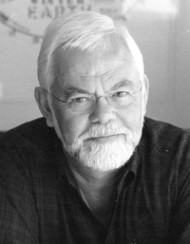 At The Immanent Frame today, I interview Charles Villa-Vicencio, a theologian who served as National Research Director for the historic Truth and Reconciliation Commission in his native South Africa. We discuss peacebuilding, forgiveness, and the kind of spirituality that he sees emerging in his country as part of the challenge of building a new nation. But we start with his transition from theology, to the Commission—where, he says, the theology really began.
At The Immanent Frame today, I interview Charles Villa-Vicencio, a theologian who served as National Research Director for the historic Truth and Reconciliation Commission in his native South Africa. We discuss peacebuilding, forgiveness, and the kind of spirituality that he sees emerging in his country as part of the challenge of building a new nation. But we start with his transition from theology, to the Commission—where, he says, the theology really began.
NS: I’d like to start with your experience with the Truth and Reconciliation Commission in South Africa. What prepared you for that experience? What kinds of skills did you find yourself using?
CVV: Prior to going to the commission, I taught in a religious studies department at the University of Cape Town. My interest was the impact of religion on secular society and of secular society on religion. I had already worked fairly extensively in the social sciences and political analysis, so the transition was not a very difficult one. It was, in a sense, continuous with what I had done. But it’s interesting that you ask that question. There was a journalist who interviewed me at the conclusion of the commission, and he asked me essentially the same thing. I realized that, though trained as a theologian, I’d hardly used a theological concept for the past three years—but, nevertheless, it may have been the most theological job I’d ever had in my life.
NS: How exactly is that?
CVV: The theology that I was teaching and practicing in the church was always related to building a decent human society, and that’s what we were trying to do in the commission. My feet were deep in liberation theology, contextual theology, and black theology. The jargon of the day was that you don’t write theology or teach theology or read theology—you do theology. The commission’s essentially pragmatic task seemed to me to be also essentially theological.